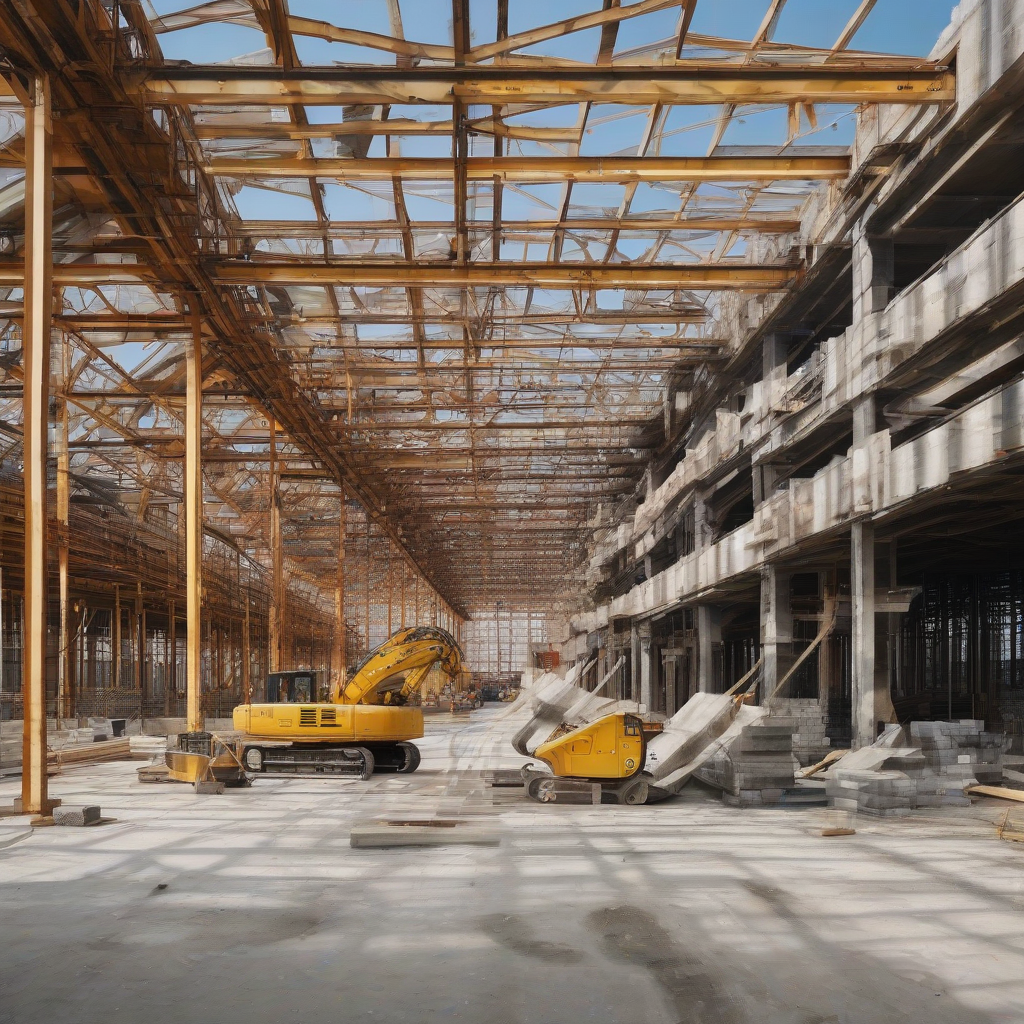Revolutionizing Construction: A Deep Dive into Construction Industry ERP Systems
The construction industry, notorious for its fragmented processes and complex projects, is undergoing a digital transformation. At the heart of this change lies the Enterprise Resource Planning (ERP) system. These integrated software solutions are revolutionizing how construction companies manage resources, track projects, and ultimately, boost profitability. This comprehensive guide explores the vital role of ERP in the construction industry, examining its features, benefits, challenges, and future trends.
What is a Construction Industry ERP System?
A Construction ERP system is a centralized software platform designed to integrate and streamline all aspects of a construction project’s lifecycle. Unlike disparate software solutions that operate in silos, an ERP system consolidates data and workflows, providing a holistic view of operations. This includes everything from estimating and bidding to project management, resource allocation, financial management, and even customer relationship management (CRM).
- Project Management: Managing timelines, tasks, resources, and budgets across multiple projects simultaneously.
- Financial Management: Tracking costs, revenue, and profitability; managing accounts payable and receivable; generating accurate financial reports.
- Resource Management: Optimizing the allocation of equipment, materials, and personnel to ensure efficient project execution.
- Supply Chain Management: Streamlining the procurement process, managing inventory, and ensuring timely delivery of materials.
- Document Management: Centralizing and organizing project documents, drawings, and communication logs.
- CRM: Managing client relationships, tracking communication, and ensuring client satisfaction.
- Reporting and Analytics: Providing real-time insights into project performance, identifying potential risks, and supporting informed decision-making.
Key Benefits of Implementing a Construction ERP System
Implementing a Construction ERP system offers a multitude of benefits that can significantly impact a company’s bottom line and overall operational efficiency.
- Improved Project Visibility and Control: Real-time data access enables better monitoring of project progress, identification of potential delays, and proactive mitigation of risks.
- Enhanced Collaboration and Communication: Centralized platform facilitates seamless communication and collaboration between project teams, subcontractors, and clients.
- Reduced Costs and Increased Profitability: Optimized resource allocation, minimized material waste, and improved project efficiency lead to significant cost savings and increased profit margins.
- Improved Accuracy and Data Integrity: Centralized data repository eliminates data silos and ensures data consistency and accuracy.
- Better Decision-Making: Real-time data and analytics enable informed decision-making based on accurate and up-to-date information.
- Increased Efficiency and Productivity: Streamlined workflows and automated processes free up valuable time and resources, boosting overall productivity.
- Improved Customer Satisfaction: Timely project completion, effective communication, and proactive issue resolution contribute to enhanced customer satisfaction.
- Better Risk Management: Early identification and mitigation of potential risks ensure projects stay on track and within budget.
- Compliance and Auditing: Easier compliance with industry regulations and simplified auditing processes.
Choosing the Right Construction ERP System
Selecting the appropriate ERP system is crucial for successful implementation. Several factors must be considered:
- Company Size and Complexity: The system should scale to accommodate the company’s size and the complexity of its projects.
- Specific Industry Needs: The system should cater to the unique requirements of the construction industry, such as project management, resource allocation, and cost tracking.
- Integration Capabilities: The system should seamlessly integrate with existing software and hardware systems.
- Scalability and Flexibility: The system should be able to adapt to the company’s changing needs and future growth.
- User-Friendliness and Training: The system should be intuitive and easy to use, with adequate training provided to users.
- Vendor Support and Maintenance: Reliable vendor support and ongoing maintenance are essential for the long-term success of the system.
- Cost of Implementation and Maintenance: The total cost of ownership, including implementation, training, and ongoing maintenance, should be carefully evaluated.
Challenges of Implementing a Construction ERP System
While the benefits of Construction ERP are undeniable, implementing such systems can present several challenges:
- High Initial Investment: The cost of purchasing, implementing, and customizing an ERP system can be significant.
- Data Migration: Transferring data from legacy systems to the new ERP system can be complex and time-consuming.
- Change Management: Resistance to change from employees accustomed to traditional methods can hinder adoption.
- Integration with Existing Systems: Integrating the ERP system with existing software and hardware can be challenging.
- Training and User Adoption: Providing adequate training to users is crucial for successful adoption and maximizing the system’s benefits.
- Customization and Configuration: Tailoring the system to meet specific business requirements can be complex and require specialized expertise.
- Ongoing Maintenance and Support: Regular maintenance and updates are necessary to ensure the system’s functionality and security.
Future Trends in Construction Industry ERP
The Construction ERP landscape is constantly evolving, driven by technological advancements and changing industry dynamics.
- Cloud-Based ERP: Cloud-based systems offer scalability, accessibility, and cost-effectiveness compared to on-premise solutions.
- Artificial Intelligence (AI) and Machine Learning (ML): AI and ML are being integrated into ERP systems to enhance predictive analytics, risk management, and resource optimization.
- Internet of Things (IoT): IoT sensors and devices are providing real-time data on equipment performance, material usage, and worker productivity.
- Building Information Modeling (BIM) Integration: Integrating BIM data with ERP systems provides a more comprehensive view of project information and improves collaboration.
- Mobile Accessibility: Mobile access to ERP systems enables field workers to access critical information and update data in real time.
- Blockchain Technology: Blockchain can enhance supply chain transparency and security by tracking materials and transactions across the entire supply chain.
- Augmented and Virtual Reality (AR/VR): AR/VR technologies are being used for training, visualization, and remote collaboration on construction projects.
Conclusion (Omitted as per instructions)
